Indoor air quality (IAQ) plays a crucial role in maintaining a healthy and comfortable living environment within your home. With people spending a significant portion of their lives indoors, ensuring the air we breathe is clean and free from pollutants or contaminants is essential. Poor indoor air quality can have a negative impact on your overall well-being, contributing to allergies, asthma, and other respiratory issues. Fortunately, with the help of our professionals at Oxbow Heating & Cooling, you can implement various strategies and solutions to improve your home’s IAQ, protect your family’s health, and enhance the quality of life within your living space.
Understanding the factors that contribute to poor IAQ is the first step toward creating a better indoor environment. Some common sources of indoor air pollution include mold, pet dander, dust mites, pollen, tobacco smoke, volatile organic compounds (VOCs) from household cleaners and building materials, and combustion byproducts from gas stoves, heaters, and fireplaces. Addressing these various pollutants and maintaining optimal humidity levels can go a long way in promoting a healthier and more comfortable living space.
In addition to identifying and eliminating sources of indoor air pollution, our professionals can help you implement various solutions and technologies to improve your IAQ. These solutions may include proper ventilation, HEPA air filtration systems, UV germicidal lamps, humidifiers and dehumidifiers, and duct cleaning services. By working closely with our experts, you will be well-equipped to make informed decisions about the best IAQ solutions for your home, tailored to your unique needs and preferences.
Read on as we dive deeper into the factors that impact your indoor air quality, the potential health risks associated with poor IAQ, and the various solutions our professionals can offer to help you create a healthier living environment. Armed with this knowledge and our expert guidance, you can take a proactive approach to improving your home’s IAQ and build a better, healthier living space for you and your family.
The Health Implications of Poor Indoor Air Quality
Poor indoor air quality can have a significant impact on the health and well-being of a home’s occupants. Exposure to various pollutants and irritants can exacerbate allergies, asthma, and other respiratory problems, among other health concerns. Some common health issues associated with poor IAQ include:
- Allergies: Pollen, pet dander, and mold spores can trigger allergic reactions, leading to symptoms such as sneezing, runny nose, and itchy eyes.
- Asthma: Poor IAQ can exacerbate asthma symptoms and make it more difficult to manage the condition effectively.
- Respiratory Infections: High levels of pollutants can irritate the respiratory system, increasing the risk of infections like bronchitis and pneumonia.
- Fatigue and Headaches: Exposure to volatile organic compounds (VOCs) and combustion byproducts can lead to fatigue, headaches, and difficulty concentrating.
Effective Ventilation Strategies for Optimal Indoor Air Quality
One of the most crucial aspects of maintaining good indoor air quality is ensuring proper ventilation throughout your home. Our professionals can help you implement various ventilation strategies to promote a healthy living environment:
- Natural Ventilation: Encourage the flow of fresh outdoor air into your home by opening windows and doors, weather permitting.
- Mechanical Ventilation: Utilize exhaust fans in high-humidity areas like bathrooms and kitchens to minimize moisture levels and minimize the growth of mold and mildew.
- Whole-Home Ventilation Systems: Our technicians can help you incorporate a whole-home ventilation system, such as an energy recovery ventilator (ERV) or a heat recovery ventilator (HRV). These systems efficiently exchange stale indoor air with fresh outdoor air while recovering energy in the process.
Advanced Air Filtration and Purification Technologies
In addition to efficient ventilation, incorporating advanced air filtration and purification technologies can effectively remove pollutants and contaminants from your home’s air. Our professionals can help you choose and install the most suitable solutions for your needs:
- HEPA Filters: High-efficiency particulate air (HEPA) filters can capture microscopic particles such as pollen, mold spores, and dust mites, improving the overall air quality within your home.
- UV Germicidal Lamps: Ultraviolet germicidal irradiation (UVGI) is an air purification method that uses short-wavelength ultraviolet (UV-C) light to kill or inactivate microorganisms, including bacteria, viruses, and mold spores.
- Electronic Air Cleaners: These devices use electrostatic attraction to capture airborne particles, including dust, pet dander, and pollen, effectively improving your home’s IAQ.
Maintaining Balanced Humidity Levels for Improved IAQ
Optimal indoor humidity levels – typically between 30% to 50% – are essential for promoting a healthier living environment and preventing the growth of mold, mildew, and dust mites. Our professionals can help you maintain balanced humidity levels in your home by recommending and installing:
- Humidifiers: These devices add moisture to the air in dry environments, preventing dry skin, irritation, and static electricity buildup.
- Dehumidifiers: These devices remove excess humidity from the air, helping to reduce mold and mildew growth in high-moisture areas.
Conclusion
By focusing on improving your indoor air quality, you can help create a healthier, more comfortable living environment for yourself and your family. Through a combination of proper ventilation, air filtration, purification technologies, and optimal humidity management, you can minimize the risks associated with poor IAQ.
Our professionals at Oxbow Heating & Cooling are here to guide and assist you in selecting and implementing the most effective HVAC service tailored to your unique needs. Contact us today to take the first step towards healthier indoor air quality in Sandy and improved quality of life.





